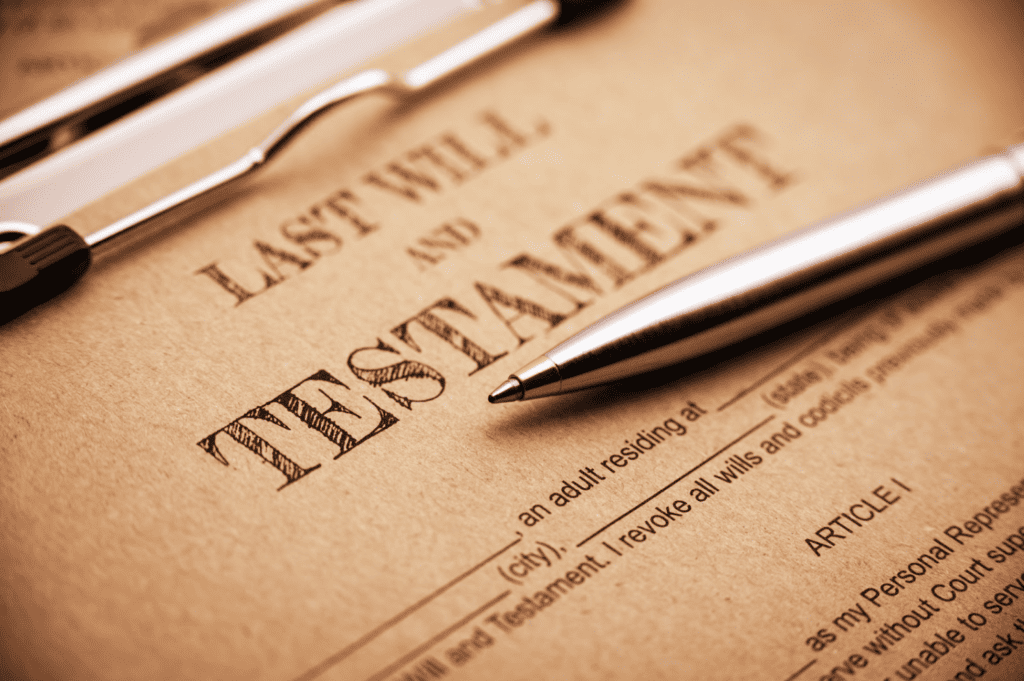Is it Worse to Die Without a Will in New York or New Jersey?
There comes a time in everyone’s lives when they ask the question –– do I need a will? The answer is indubitably yes, everyone needs a will. When someone dies without a will, all of their assets, with the exception of assets that are held jointly or that require a named beneficiary upon creation, are distributed based on a state’s intestacy laws. A will is a document that lists the individuals your assets will be allocated to in the event of death, and having such a document can save your loved ones a lot of time, angst, money, and even legal fees. To get a basic sense of state intestacy laws, we can compare New York and New Jersey.

Dying Without a Will in the State of New York
If you die without a will in the State of New York, your surviving spouse inherits the entire probate estate if there are no children or other descendants. In the case that there are children, the surviving spouse inherits the first $50,000, and the remaining balance is divided in half between the spouse and children.
If there is no surviving spouse but there are children, the entire probate estate will be passed to those descendants. The children will take their share of the probate estate “by representation”, meaning that the assets will be divided equally among the members of each surviving generation, or the generation nearest to the deceased ancestor. If the individual does not have a surviving child or spouse, the probate estate is allocated to the deceased's parents and divided equally.
In the absence of any direct surviving family, the probate estate will be divided in half between the deceased person’s maternal and paternal relatives. The specified order in which the probate estate is passed down begins with the grandparents on either side and subsequently moves to the first cousins once removed. If the surviving relative closest to the deceased is a second cousin or more removed, the probate estate passes to the State of New York.
Dying Without a Will in the State of New Jersey
In contrast, New Jersey law distributes assets through a “branch system”, where priority is strictly given to the deceased’s surviving spouse if there is no written will. In this case, the spouse inherits the entire probate estate. From there, the situation becomes increasingly complex if children from different spouses and partners are involved. For example, if the current living spouse has children with the deceased, but also with someone else, the spouse will inherit 25% of the deceased’s estate – no more than $200,000 and no less than $50,000 – then the spouse will get half of the remaining estate while the deceased’s children split the other half. In the event of no surviving children or grandchildren, then parents, siblings, and siblings’ descendants are next in line. If no one in the second branch is alive, the last branch consists of grandparents, aunts and uncles, and descendants of aunts and uncles. If no one in the last branch is alive, and there is no living spouse, then unadopted stepchildren get the last chance to inherit before the deceased’s probate estate is seized by the state.
Which is Worse?
Compared to New York, New Jersey’s intestacy laws are much more intricate, and, many times, your money may not be passed down in a direction that seems appropriate to you.
The best way to prevent these headaches is by having a written will. A will gives you autonomy, and is a safe way to ensure that your assets are allocated to the people that you believe truly deserve to benefit from your life’s work. No matter how big or small of an impact you believe your assets will make, it is important to have a plan and give you and family peace of mind. If you have any further questions or are ready to begin your estate planning journey, please contact the Trust and Estate Planning Law office at (718) 333–2395.
